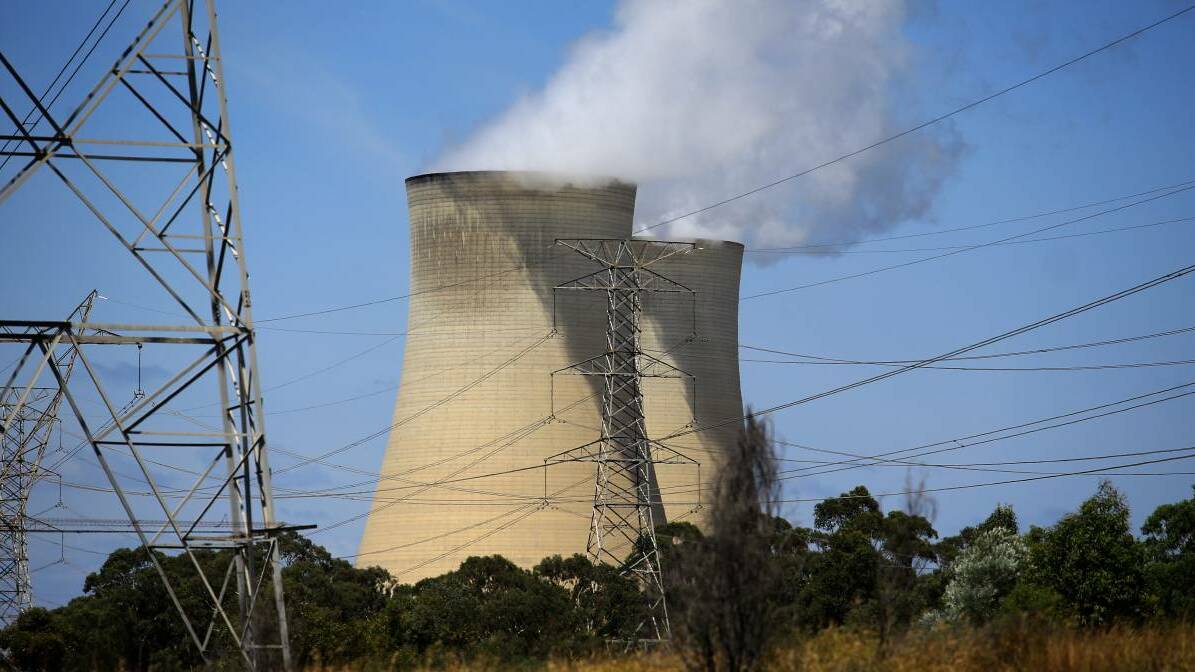"Longstanding coal communities, like those in the Hunter and Illawarra regions, have powered our state for a long time. Lack of planning and economic diversification by government has delayed the energy transition, at a great cost to their health, and the environment. We must start planning now for our energy transition, to ensure no-one is left behind," says Independent Member for Sydney Alex Greenwich.
Subscribe now for unlimited access.
or signup to continue reading
Mr Greenwich was commenting on the just released parliamentary report into 'Sustainability of energy supply and resources in New South Wales' of which he was chair. The report was prepared by the Committee on Environment and Planning and based on their inquiry first established in 2019.
They heard from many and diverse stakeholders and according to the report's summary "What we heard from them generally stemmed from three issues - transition planning, infrastructure, and government support."
"A lot of work is being done in this space, and there are different views about what the future will or should look like. We heard overwhelmingly that thorough and clear planning is crucial, whatever the future."
The fact coal demand is changing due to cheaper renewable sources and technological advances, environmental concerns and climate change and the decision by governments in Australia (state) and overseas to commit to net zero emission by 2050. All these issues will have an impact on demand for coal.
This report was released in the same week as Australia's biggest energy user, the Tomago aluminium smelter in the Hunter Valley, announced plans to switch to 100 per cent renewable energy by 2030, which may foreshadow an early closure for AGL's Bayswater power station, which counts Tomago as its biggest customer.
Tomago Aluminium CEO Matt Howell told The Australian Financial Review "Our goal would be, by 2029, that the largest load in Australia is, for all intents and purposes, 100 per cent renewable."
Tomago Aluminium, majority-owned by resources giant Rio Tinto, uses over half of the coal-fired energy produced by Bayswater according to Greenpeace.
The parliamentary report praises the efforts of the NSW Government to address some of these issues including the commitment to net zero by 2050 and the establishment of Renewable Energy Zones but more work is needed in particular the need for collaborative planning to ensure communities like the Hunter, which is heavily reliant on the mining industry ,receives the funding to achieve a just transition.

"Coal communities generally don't have diversified economies given the high level of economic concentration in the coal industry and its associated supply chain industries. The high proportion of regional workforces employed in the coal industry means there's a lower level of diversity in the regional skills mix," the report states
Coal communities generally don't have diversified economies given the high level of economic concentration in the coal industry and its associated supply chain industries.
- NSW Parliamentary Report summary
"These factors mean the community and its workforce face significant risks, including high unemployment and socio-economic declines, when there are changes to demand for coal and coal-fired power generation."
To address this fact and ensure NSW has reliable energy sources the report makes 21 findings and recommendations.
Among them is the call to not burn native forests timbers or native biomass to produce energy.
One of the recommendations is that the NSW Government consider a jobs guarantee proposal and its utilisation in other jurisdictions. Along with other relevant Government agencies, this could be undertaken within the Expert Panel for Royalties for Rejuvenation's work to protect jobs and industries, support communities and identify future opportunities that can be built off the back of the mining legacy.
Also that the NSW Government requires mine operators, or site operators/owners, to rehabilitate and reuse existing infrastructure on mines and power generation sites to allow for the reuse of facilities worth billions, which could assist with making sites more attractive for new commercial and industrial activities and their associated employment.
Lock the Gate Alliance NSW spokesperson Georgina Woods said she hoped the Berejiklian Government would take the findings of the report seriously, for the sake of the communities that had powered the state for generations.
"NSW owes a debt to places like the Hunter and the Illawarra, which have done the heavy lifting for so many years. We must ensure people living here are not left behind as the world shifts to a zero carbon economy," she said.
"The time to act was yesterday. These shifts in the global economy are already taking place, with some of our largest trading partners like Japan and South Korea announcing plans to decarbonise.
"The inquiry found overwhelmingly that when structural changes like this occur, clear planning and involvement of the community is crucial."
This week NSW Minister for Planning and Public Spaces Rob Stokes said proposed changes to the Infrastructure State Environment Planning Policy (SEPP) were now on public exhibition and they aim to remove hurdles in the planning system for more sustainable energy and faster telecommunications.
"More people are working from home than ever and many of them want their homes to be powered by renewable energy," Mr Stokes said.
"This will help homeowners save time and money and cut their future energy bills."
by Louise Nichols

